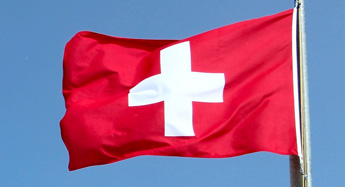A Swiss MA is the "first authorisation" for the purpose of an SPC
Further to a request for a preliminary ruling from the High Court of Justice (England and Wales), in the proceeding AstraZeneca AB v Comptroller General of Patents, Designs and Trade Marks1, the CJEU has ruled that an administrative authorisation issued for a medicinal product by the Swiss Institute for Medicinal Products (SwissMedic), which is automatically recognised in Liechtenstein, must be regarded as the first authorisation to place that medicinal product on the market within the meaning of Article 13(1) of Regulation (EC) No 469/2009 ("SPC Regulation") for the purposes of obtaining a supplementary protection certificate (SPC).
This applies in circumstances where the authorisation predates marketing authorisations issued for the same medicinal product, either by the European Medicines Agency, or by the competent authorities of European Union Member States in accordance with the requirements laid down in Directive 2001/83/EC on the Community code relating to medicinal products for human use, and the authorities of the Republic of Iceland and the Kingdom of Norway.
The fact that, on the basis of similar clinical data, the European Medicines Agency, unlike the Swiss authority, refused to grant a marketing authorisation for that medicinal product at the conclusion of its examination of those data, or the fact that the Swiss authorisation to place the product on the market was suspended by the Swiss Institute for Medicinal Products and subsequently reinstated by the latter only when the holder of the authorisation submitted additional data to it are irrelevant.
 AstraZeneca took the view that the “first authorisation” for SPC purposes should comply with the applicable EU law requirements (Directive 2001/83) which is not the case for its Swiss marketing authorisation. In contrast, the CJEU - on the basis of the Novartis ruling (joined cases C-207/03 and C-252/03) - clarified that AstraZeneca's 2004 Swiss marketing authorisation, and not its 2009 EU authorisation, is the “first authorisation” for the purpose of calculating the duration of the SPC. As a result, the length of the SPC was significantly reduced in this case. A precondition for the court ruling was the fact that a Swiss marketing authorisation is automatically recognised by Liechtenstein and Liechtenstein, as a member of the European Economic Area, entered into a mutual recognition agreement with the European Union.
AstraZeneca took the view that the “first authorisation” for SPC purposes should comply with the applicable EU law requirements (Directive 2001/83) which is not the case for its Swiss marketing authorisation. In contrast, the CJEU - on the basis of the Novartis ruling (joined cases C-207/03 and C-252/03) - clarified that AstraZeneca's 2004 Swiss marketing authorisation, and not its 2009 EU authorisation, is the “first authorisation” for the purpose of calculating the duration of the SPC. As a result, the length of the SPC was significantly reduced in this case. A precondition for the court ruling was the fact that a Swiss marketing authorisation is automatically recognised by Liechtenstein and Liechtenstein, as a member of the European Economic Area, entered into a mutual recognition agreement with the European Union.
Additionally, the order of the CJEU is important with regard to Article 10 Directive 2001/83 and the period of data exclusivity for medicinal products. In principle, an applicant is not required to provide the results of pre-clinical tests and of clinical trials if he can demonstrate that the medicinal product is a generic of a reference medicinal product which is or has been authorised for not less than eight years in a Member State or in the Community. Such a generic medicinal product cannot be placed on the market until ten years have elapsed from the initial authorisation of the reference product. The date of the “first authorisation” is, therefore, essential and companies need to bear in mind that in future a Swiss marketing authorisation will be considered as the “first authorisation” in respect of the data exclusivity period. A coordination of several applications within Europe is necessary to prevent companies from losing their period of protection.
If you have any questions on this article or would like to propose a subject to be addressed by Synapse please contact us.


Wolfgang Rehmann
Wolfgang is Of Counsel in the Pharmaceutical & Patents group based in our Munich office.

